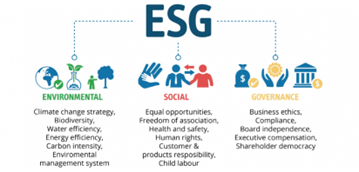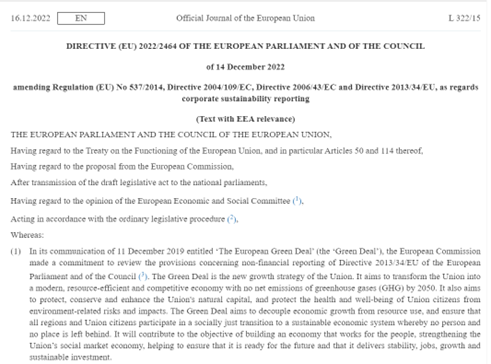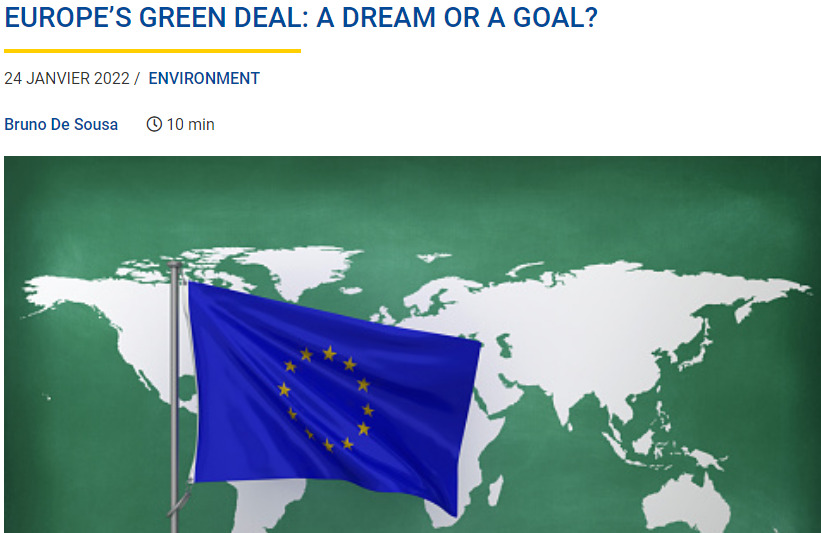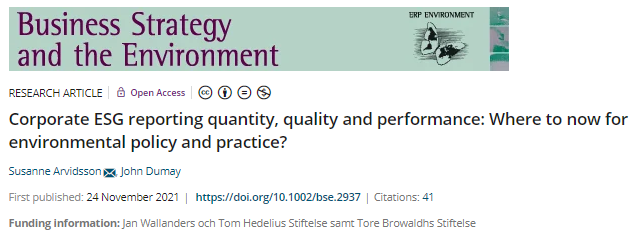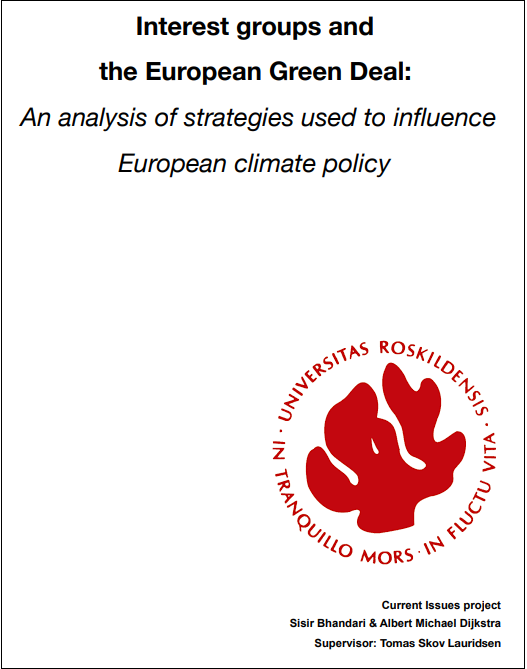The Corporate Sustainability Reporting Directive (CSRD) published in December 2022 is the most recent step towards a more sustainable development at a European Union level. In detail, it aims to ensure that companies provide adequate information regarding the way they operate and the impact they have on the environment. The implementation of this new piece of legislation will not only have an impact on our continent, but globally, as the European market is one of the central hubs of world trade.
The CSRD amends other pieces of legislation, specifically the Accounting Directive (Directive 2013/34/EU), the Transparency Directive (Directive 2004/109/EC), the Audit Directive (Directive 2006/43/EC) and the Audit Regulation (Regulation (EU) No 537/2014/), besides replacing the Non-Financial Reporting Directive (Directive 2014/95/EU). The implementation of such measures is essential to build a greener society and for the fight against climate change. The development of this directive represents an essential progress in the path towards the Sustainable Development Goals that need to be achieved within 2030. In particular, it focuses on the 13th goal, which is to say ‘climate action’. As a matter of fact, the European market is the most important in the world when dealing with global trade and its attitude and policies have consequences all around the world. This is why the implementation and the correct application of the CSRD is particularly relevant not only for the Member States of the EU, but also outside our continent, in particular for developing countries that are strongly connected to the European market. Its application will push a more sustainable development at a global level and consequently facilitate the achievement of the 2030 goals.
The CSRD has significantly increased the number of companies required to publish ESG (environmental, social and governance) information and has defined more comprehensive and detailed guidelines compared to preceding NFRD (Non-Financial Reporting Directive) based legislation. One of the core points of the European Commission NFRD (Art. 19a. 1) was that public entities with more than 500 employees shall include non-financial information in their annual reports, this set the basis for further development carried out by the CSRD. Then the CSRD goes beyond, stating the five most crucial policies for tackling climate change, in detail: the development of clean energy infrastructure, the building of efficiency retrofits, the education and training for workers, natural capital investments and clean R&D (Research and Development). As we can observe, there is no mention to corporate ESG reporting which is particularly problematic, as no guidelines are provided to companies. Consequently, the work for the firms involved is not as easy as it should have been, and reaching the Green Deal goals within 2050 is essential, but at the same time challenging.
Specifically, the European Green Deal (EGD) is based on sustainable principles and is a series of measures that allow the reduction of carbon and air pollutants in the atmosphere while balancing economic development, safety and European citizens’ quality of life. One of the crucial points is the implementation of the European climate law, which targets achieving climate neutrality by 2050. In this context, corporations play a fundamental role since a significant portion of the emissions stems from their activities.
What does the CSRD imply for corporations and the environment and how did we reach it?
The CSRD represents a significant improvement regarding the drafting of reports in companies and organizations, as it provides several requirements that companies need to meet, in order to achieve the European Green Deal and the Union’s climate-neutrality goal for 2050. For this reason, the setting of reporting standards is essential, with the purpose of empowering the European Commission to adopt them. In addition, in the directive relevance is given to the ‘double materiality principle’: companies are required to provide information both on how sustainability issues affect their work and development (the ‘outside-in’ perspective) and on their impact on people and the environment (the ‘inside-out’ perspective). The goal is to standardize the sustainable reports of the companies located in the countries involved, despite the differences they present among them. According to CSRD’s provisions, a company needs to develop a dedicated section of its management providing the information necessary to understand its impact on sustainability matters.
In people’s perception these aspects have acquired significant importance since COVID-19 pandemic has brought the climate change agenda forward, as we all now have to understand if its impact will be the same as the pandemic or even worse. For this reason, it is essential to increase the development of sustainable initiatives, such as developing clean energy infrastructure, building efficiency retrofits, educating and training workers, investing in natural capital and promoting clean R&D. It is also important that the EU itself supports the economy and supports the path towards the Green Deal 2050 with ad-hoc policies and laws. Several studies have been carried out focusing on different areas of Europe, aiming at understanding the main characteristics of corporate sustainability and highlighting the steps forward that need to be taken. Specifically, such research has been developed aiming at understanding the impact of the CSRD on several areas and sectors and in which ways it can benefit the sustainable development of corporations.
In particular, two main studies can be considered relevant in this sense, we are going to compare the effect of the above-mentioned policies on some European countries with particularly dissimilar backgrounds as regards this field: Sweden and Czech Republic.
The Swedish case: pioneers of corporate sustainability
It is a well-known fact that Sweden has always been one of the global leaders in corporate sustainability. Since the past century, this country has been one of the pioneers as regards testing different innovative reporting practices. An interesting research carried out by Professors Susanne Arvidsson and John Dumay has shown the changes that are affecting Swedish corporations from a sustainable point of view. First of all, some of the most topical environmental themes in which Swedish companies are more active include reducing CO2 and other emissions, recycling and disposing of other waste sustainably, minimizing the consumption of water, energy and other resources, using renewable energy, fostering biodiversity and implementing ISO14001. A decade ago, Swedish companies were ranked fourth in the world for integrating ESG information into corporate reports. However, today the EU Directive reports made available by the Alliance for Corporate Transparency have shown that things have changed and Swedish companies are no longer in the lead. In this case it does not seem that the EU Directive has improved their performance. In addition, today’s regulatory climate and increased ESG interest among Swedish investors have affected Swedish ESG reporting and these issues have become relevant in corporate reporting and performance.
Because of this change of situation, it is essential to understand what Swedish policymakers can do to improve corporate transparency and rebuild trust among investors and stakeholders. In particular, at the moment they are encouraging mapping and reporting climate-related risks, in order to implement the climate transition of the economy and to reduce the risk of a future financial crisis due to climate change. Both the EU Green Deal and financial market actors point out the need for enhanced ESG information quality when assessing corporate ESG performance and to redirect financial flows towards investments to mitigate the climate crises. However, because of their association with the EU, Swedish policymakers must first implement any policy changes at the EU level before considering Swedish measures. If they continue to transpose the European reporting directives into law, they will mainly adapt Sweden’s ESG reporting development to the wishes of the European Commission. Nevertheless, the provisions of the European regulation do not prevent Swedish policymakers from introducing proactive policies for improving ESG performance and especially practices aimed at tackling climate change. For example, the NFRD has been transposed into national law in European countries. As we have seen, it requires all large firms, with 500 employees or more, to map and report on climate-related risks. In Sweden, the limit was lowered to 250 employees. In addition, Sweden is currently working towards a green economy by 2045, 5 years ahead of the EU’s Green Deal goal. The country is implementing several environmental policies, such as expanding renewable energy resources, turning wood into textiles, promoting sustainable development, creating climate-smart cities and changing consumer behavior to help build a circular economy.
All in all, the results of Arvidsson and Dumay’s work show that larger firms are keener on reporting on climate-related risks than smaller companies. However, we have to say that external reporting is often general and lacks details. Without improved (and detailed) guidelines from policy-makers on how to integrate these issues into the decision-making processes of firms, it is unlikely that the EU’s new policies, such as the CSRD, will achieve their aim to strongly impact on firms’ behavior and financial investment decisions. It is also essential to consider that the Swedish case is quite controversial (as it is a country that already had a good starting point) and probably national policies may be the solution, in order to be perfectly suited and adapted to the Swedish context.
The Czech case: how government can contribute in corporate sustainability
The second relevant European case to take into account regards the Czech Republic and more extensively a lot of Eastern European countries. As a matter of fact, several nations located in this geographical area still need to improve for what concerns corporate sustainability and the development of sustainable policies and laws. In contrast to Sweden, where high-quality and sustainable reporting is widespread, the Czech Republic begins from a dissimilar standpoint, where such reporting is still rare.
As stated in Balogh, Srivastava and Tyll’s work, in the past years Central and Eastern Europe have made significant progress in sustainability. Nevertheless, this is not sufficient to keep up with the demands. In addition, in the CEE region companies are strongly linked with the government and consequently have a more difficult self-development (it will be more complicated for them to develop their own strategies and plans, because of the strong connection to the government and the less freedom they enjoy regarding decision-making). This highlights the importance of an international and larger board structure that enhances the evolution of ESG disclosure and its consequently implementation. This is because foreign board members are usually more aware of environmental issues and improving disclosure quality among others. They also bring to the firm foreign practices, being aware of international standards, and by doing this are able to improve the existing situation. This leadership may lead to the attraction of investments both at a local and at an international level, however, Czech Republic’s firms are still quite behind in entering into the international market. This happens because many firms tend to focus more on what is considered important for the national market, not considering other matters, such as environmental disclosures, which are more relevant for the international market. This is an important point, as it shows that in this country considerable efforts still need to be made in order to increase corporate awareness regarding this topic. Another evident lack in Czech Republic corporations is the presence of female directors. This represents a problem regarding both gender equality and environmental awareness, as in general, women are more sensitive towards ethical and environmental issues. Another key point is that ESG disclosures can also be used as a sustainable competitive advantage to boost the sales and profit of these firms. It has been demonstrated that the propensity to incorporate CSR concepts is strongly influenced by the size of the firm: in 2014 Czech Republic implemented the EU Directive on non-financial reporting measures (2014/95/EU) and in 2017, it was made mandatory for companies which had more than 500 employees to report non-financial measures. Consequently, SMEs (Small and Medium Enterprises) in the CEE region remain excluded from these provisions and usually they do not have a plain understanding and are not able to use this type of communication in the most proper way.
Despite these difficulties, when dealing with sustainable corporations in the Czech Republic we have to mention that the national government made a step forward with regards to the form presentation of CSR reports by the firms. As a matter of fact, Czech companies have to file their reports with the Commercial Register to be e-published and so made digitally and freely available to the public. By the operation of EU law, these data are further sent to the EU central system BRIS on the e-Justice Portal. However, neither EU law nor Czech law provides specific mandatory criteria about the organization of the information. So, it is up to these companies regarding how much and to what extent they will provide CSR information.
All things considered, the CSRD has improved the situation in the Czech Republic and especially during the last few years several steps forward have already been taken, nevertheless, the sustainable process is still quite behind compared to other European Member States and it is necessary to increase the pace and efforts to achieve the international goals set for 2050.
Possible improvements
Today, sustainability plays a primary plan role both in climate change and in the market. It represents one of the main investors’ concerns, customers tend to choose sustainable products and employees prefer to work for companies involved in environmentally friendly activities. In the EU, member states have started a sustainable and inclusive growth, they have aligned with the EU law provisions and respect CSR ethics, both informing and being informed about it. In this sense, the inclusion of CSR information in freely available digital annual reports may represent a great opportunity offered by our digital era for all stakeholders (and not only to them). Despite the positive initiatives and intentions, significant progress is still required to achieve the EGD 2050 goals. Among the steps that need to be taken are the need to reduce emissions produced by companies and the necessity to adopt more environmentally sustainable policies (e.g., the introduction of cost-saving practices or a more conscious use of resources). The CSRD represents a relevant step in this direction, but it’s not enough. The Swedish and the Czech cases have shown that the gaps to be filled are still a lot and more practical measures and further policies need to be implemented both at a European and at a national level. This is essential in order to provide more concrete support to the companies involved and to have a positive impact on developing countries, possibly involving them in these sustainable changes too.
Federica Sasdelli is a M.Sc. student, University Modena and Reggio Emilia, DDRN University Intern



